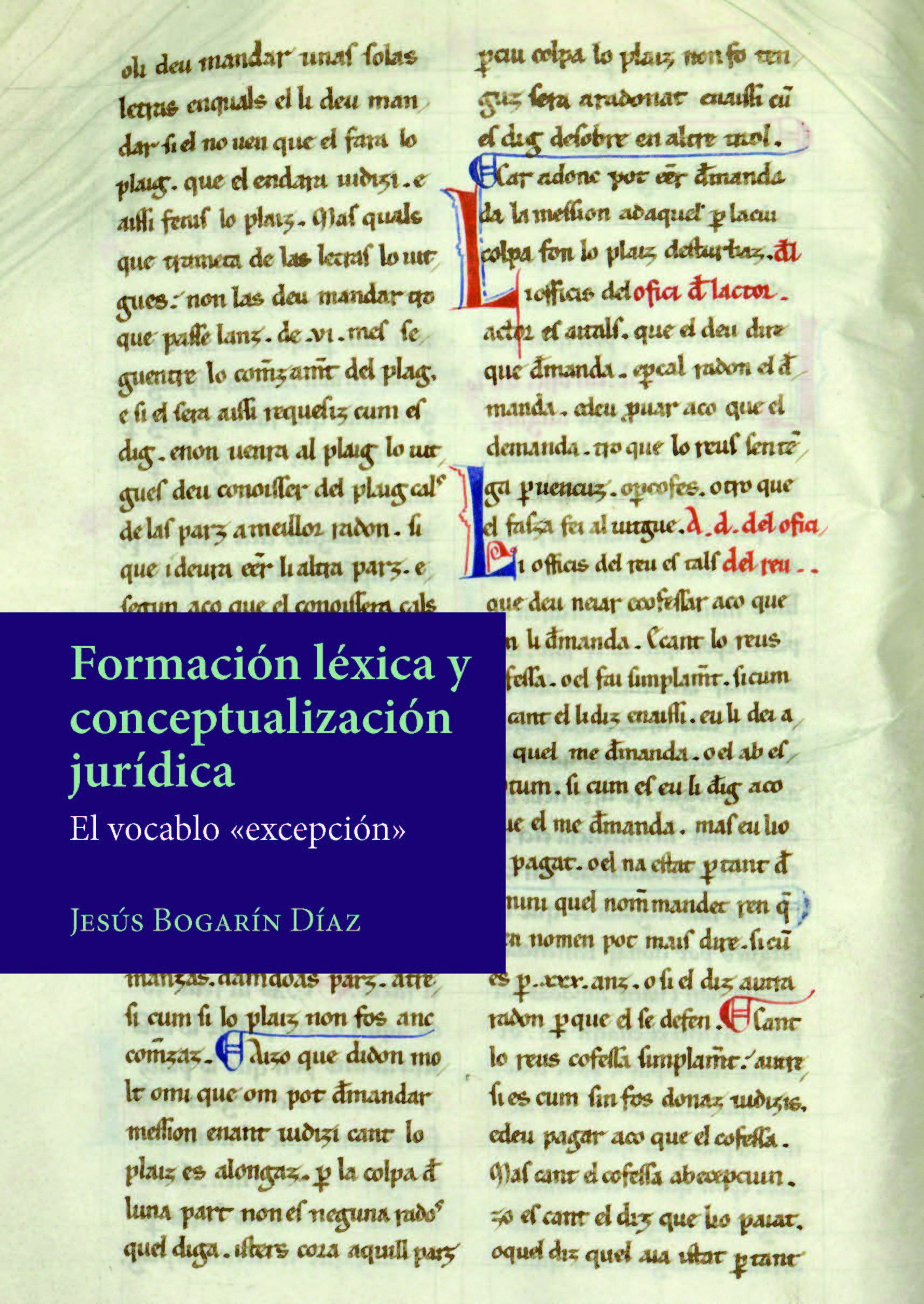(image source: DOABooks)
Book presentation:
In this paper, the author carries out a study of Jurilinguistics with a mutual approach towards Linguistics and Law. The topic is the Spanish word excepción, whose lexical formation is studied from its Indo-European root and whose semantic delimitation is specified in detail in Latin. Paradoxically, it is not a term that legislation or legal science took from everyday language to give it a technical meaning, but rather a term that was borrowed from forensic language and then entered everyday language through metaphorical usage. The author then shows how the Latin word exceptio, not inherited by Romance languages, was recovered by them from the 12th century. It was then used precisely as a legal technical term, not only in the original procedural sense, but with new legal meanings. Addtionally, exceptio entered common use in Romance languages with more success than it did in Latin. In order to show these changes, the author analyses the content of the successive editions of the Dictionary of the Royal Spanish Academy and the recent Pan-Hispanic Dictionary of Legal Spanish.
Read more here.


No comments:
Post a Comment
Note: Only a member of this blog may post a comment.